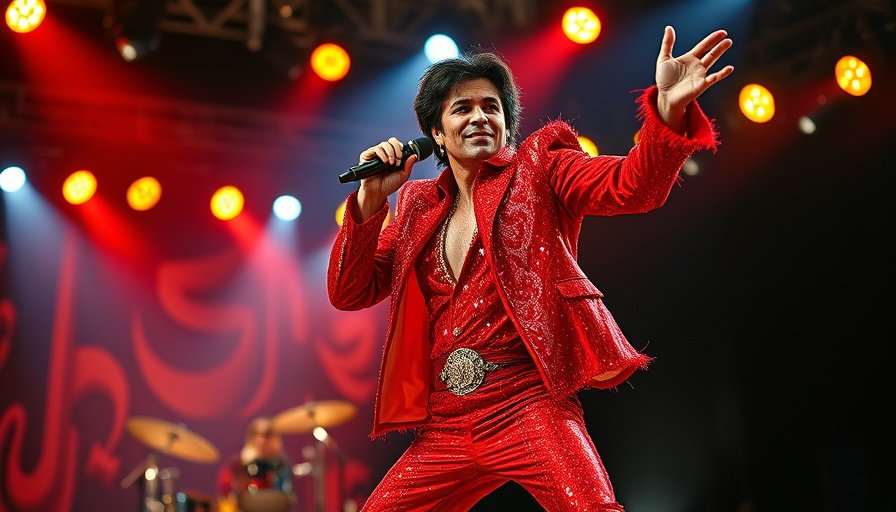
The Magical Era of Michaelmania
Michael Jackson, often hailed as the "King of Pop," redefined the music landscape during the dazzling decade of the 1980s. His artistry transcended beyond mere entertainment; it mirrored the socio-political shifts occurring globally. As we reflect on Michaelmania, what becomes clear is that Jackson was not just an artist, but a cultural phenomenon that changed the very fabric of popular music and its intersection with race, identity, and commercial success.
Thriller: A Groundbreaking Masterpiece
Released in 1982, Michael's album Thriller represented a seismic shift in the music industry. The album's seven tracks that drove into the Billboard’s Top Ten bridged genres, uniting R&B, rock, and pop in a way never before seen. This was more than an artistic triumph; it served as a moment of cultural significance, setting new industry standards and revitalizing the power of Black artistry in mainstream music.
The Duality of Michael's Persona
Offstage, Michael was known for his introverted and modest character, a stark contrast to the electric performer audiences saw during his live shows. This transition from a reserved individual to a commanding stage presence invites the question of what it truly means to be a performer. His concerts were not simple performances; they were experiences where fans felt the palpable energy of his artistry, often leading to overwhelming emotions, even fainting.
Commercialization and Strategic Alliances
While some may argue that the commercialization of musicians dilutes their art, Jackson's strategic partnerships, particularly with brands like Pepsi, reveal an insightful approach to brand elevation. These partnerships were not merely endorsements; they were calculated expansions into untapped markets, illustrating how music and business have always been intertwined. The "Victory" tour, infused with brotherly collaboration, became a significant milestone, highlighting both family legacy and solo achievement.
Challenges Faced: Overcoming the Odds
The highly publicized hair accident during a Pepsi commercial was a critical moment that could have halted his career. Instead, Michael exhibited an extraordinary level of resilience, showcasing his refusal to let adversity define him. This fortitude resonates strongly in the corporate world where overcoming challenges determines prolonged success, making Jackson's life an inspiring narrative for business owners and facility managers alike.
Legacy of Michaelmania and Future Reflections
While the 1980s may seem like a distant memory, the legacy of Michaelmania remains. The music industry's evolution that followed in the decades after illustrates how his influence extended far beyond his time. As we observe current trends in the commercial sector, there are simple yet profound lessons drawn from Jackson's approach to art and business. His ability to balance creativity with commercial acumen provides valuable insights for today's market, especially within construction and development sectors.
In embracing these lessons, businesses can honor the legacy of artistry that shaped our cultural landscape while positioning themselves to navigate the complexities of contemporary markets effectively.
Why You Should Embrace Artistry in Your Brand
Reflecting on Michael Jackson's impact encourages businesses to blend creativity with strategy. Just as Michael transformed his experiences into cultural capital, organizations can benefit from infusing artistic approaches into project management and customer engagement strategies. Embracing this notion might just provide the competitive edge in today's fast-paced economy.
 Add Row
Add Row  Add
Add 




Write A Comment